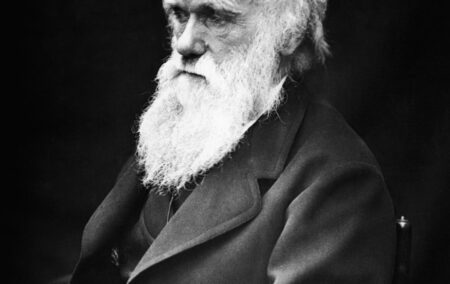Public acceptance of the theory of evolution in the United States is now above 50%, according to research conducted by the Institute for Social Research at the University of Michigan.
In a series of national public opinion surveys dating back to 1985, American adults were asked whether they accepted, rejected, or were unsure, in response to the statement: ‘Human beings, as we know them today, developed from earlier species of animals.’
Until 2010, equal numbers of respondents supported and rejected the theory, but acceptance of evolution has grown steadily since.
According to lead researcher Jon Miller: ‘From 1985 to 2010, there was a statistical dead heat between acceptance and rejection of evolution.’
However, from 2012 to 2020, acceptance of evolution was consistently in the lead, with the latest poll, conducted in 2020, showing that 52% of respondents accepted the notion while 36% rejected it.
A 2015 survey conducted by the Pew Research Centre found a 98% acceptance rate among the scientific community. Despite the discrepancy in acceptance between the scientific community and the public, Miller and his collaborators have described the results as encouraging, identifying improvements in education as an important causal factor in explaining the recent uptick in acceptance of evolution. They cite the fact that the proportion of Americans with college degrees nearly doubled between 1988 and 2018 to be one such example.
The study found religious fundamentalism to be the strongest factor leading to the rejection of evolution. In 2019, 32% of those who scored highest on the scale of religious fundamentalism accepted evolution compared to 91% of those who scored lowest on the scale. However, even the number of religious fundamentalists who accepted evolution has shifted dramatically from 8% in 1988.
Attitudes to evolution differ substantially across political lines. Observers point out that while this may not be surprising given that a majority of religious fundamentalists vote Republican, what is surprising is that despite the general increase in acceptance of evolution countrywide, Miller and his team found that acceptance levels among Republicans dropped from 54% in 2009 to 34% in 2019. They believe that this can be partially explained by the Republican Party pandering to religious fundamentalism, politicising attitudes toward evolution as a result.
The study concluded on a hopeful note, anticipating ‘a moderate rate of growth in the public acceptance of evolution in the United States in the decades ahead’, mainly due to the researchers’ hope of ‘continued growth of educational attainment among American adults in the twenty-first century’.

